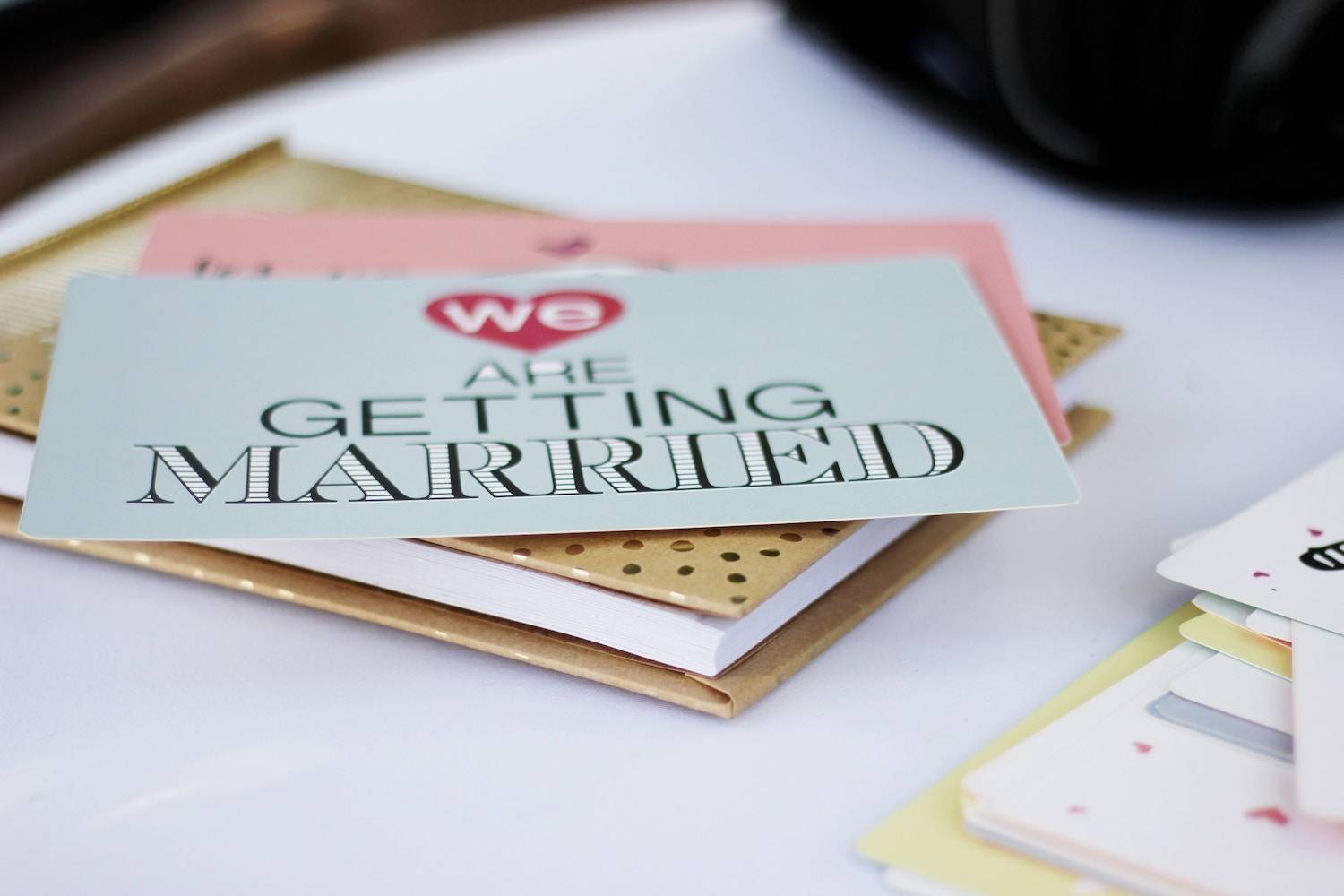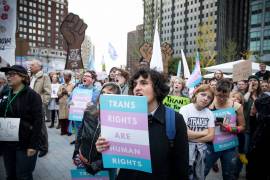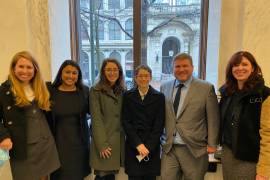The Arizona Supreme Court today issued a 4-3 decision reversing a lower court ruling that had denied a Phoenix business owners’ request that they be exempt from the City of Phoenix anti-discrimination ordinance and instead be allowed to refuse service to same-sex couples. The owners claim it violates their religion to treat same- and different-sex couples equally.
The business, Brush & Nib Studio, is represented by Alliance Defending Freedom (ADF), an anti-LGBT legal organization that has been designated a hate group by the Southern Poverty Law Center. This is one of several cases in state and federal courts seeking to create a religious right to discriminate.
Lambda Legal has submitted friend-of-the-court briefs supporting the City of Phoenix. Lambda Legal Senior Counsel and Law & Policy Director Jennifer C. Pizer authored those briefs and issued the following statement:
“Today, addressing a narrow factual context, a closely divided Arizona Supreme Court issued a troubling decision that grants business owners a limited license to discriminate when creating custom-designed, wedding-related art work. The Court misguidedly has concluded that free speech protections allow businesses to express antigay religious views by denying particular custom-design services to customers because of who they are. This ruling is dramatically at odds with decisions by courts across the country that have instead refused to create a religious license for businesses to exempt themselves from civil rights laws, and to pick and choose their customers according to their own religious criteria.
“The Arizona Court of Appeals last summer issued a thoughtful and comprehensive ruling that held that the operation of a stationery store, including designing and selling customized wedding merchandise, is not an expression of the business owners’ ideas and therefore not entitled to free speech protections. A majority of the justices on the Arizona Supreme Court disagreed.”
Justice Scott Bales, in an elegant and well-reasoned dissent, explained that:
“The Ordinance … ensures that once a vendor decides to offer a good or service, a vendor must not refuse to provide such goods or services to a protected class that it would otherwise provide to the public. Although the creation of wedding invitations may be expressive, the operation of a business catering to the public is not. * * * Here the conduct prohibited by the Ordinance is a vendor’s refusing to sell to same-sex couples the same goods or services offered to others. Such a refusal is the very definition of discrimination by a public accommodation. That complying with the public accommodations law may require the vendor to engage in ‘speech’ does not mean that discriminatory conduct is constitutionally protected.”
Vice Chief Justice Timmer and Judge Staring joined Justice Bales’ dissent, and both also filed their own separate dissenting opinions.
“Two years ago, we argued in our friend-of-the-court brief to the U.S. Supreme Court in Masterpiece Cakeshop v. Colorado Civil Rights Commission that these cases aren’t really about cake or stationery or flowers: they’re about whether LGBT people and their families are equal members of society, or instead are subject to humiliating denials of service in countless places, from fertility clinic to funeral home, and everywhere in between. The Arizona Supreme Court majority strains to create today’s limited exception to the U.S. Supreme Court’s admonition in that case, which firmly rejected the notion that religious beliefs excuse marketplace discrimination, citing a case from more than half a century ago. That 1968 case rejected as ‘patently frivolous’ a business owner’s claim of a right to discriminate against customers based on religious beliefs. Though narrow, today’s decision alarmingly cracks open the door to religion and free speech protections being misused as weapons against LGBTQ people and their families and religious minorities, not to mention the dire implications for everyone seeking reproductive health services and many others. Luckily, it is unlikely to be the last word on this subject.”
Brush & Nib Studio v. City of Phoenix was filed in 2016 by ADF on behalf of Joanna Duka and Breanna Koski, after Lambda Legal had invalidated Arizona’s exclusion of same-sex couples from marriage, and shortly after the U.S. Supreme Court struck down state marriage bans nationwide in the historic Obergefell v. Hodges decision. Duka and Koski sought an exemption from the Phoenix ordinance, even though no same-sex couple had ever sought their services. To date, they still have never been asked to produce wedding-related goods for a same-sex couple.
In October 2017, a Maricopa County Superior Court judge denied Brush & Nib’s effort to thwart the Phoenix ordinance. ADF then appealed to the Arizona Court of Appeals, which affirmed the Superior Court ruling in June 2018. Lambda Legal submitted a friend-of-the-court brief to the appellate court as well as to the Arizona Supreme Court.
Brush & Nib is one of several cases active in state and federal courts in which businesses are claiming a religious license to discriminate and in which Lambda Legal is involved either through direct representation, or as amicus. These include: Klein (dba Sweetcakes by Melissa) v. Oregon Bureau of Labor and Industries, in which Lambda Legal represents the lesbian couple denied service by the bakery, the Oregon courts rejected the bakery owners’ religion and speech defenses and awarded damages to our clients, and the case is back before the state appeals court after the U.S. Supreme Court ordered additional briefing; Ingersoll and Freed v. Arlene’s Flowers, in which Lambda Legal is a friend of the court supporting the gay couple denied service by a florist, and in which the Supreme Court of Washington just reaffirmed its ruling in favor of the couple after the U.S. Supreme Court ordered additional briefing; and, Cervelli v. Aloha Bed & Breakfast, in which Lambda Legal represents a lesbian couple denied lodging at a Hawai`i B&B, the Hawai`i courts have rejected the business owner’s religion and speech defenses, and the owner unsuccessfully sought U.S. Supreme Court review.
Lambda Legal’s Law and Policy Director Jennifer C. Pizer authored Lambda Legal’s amicus briefs, together with co-counsel Jessica Hernandez of Phoenix, Arizona.





